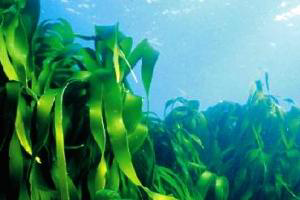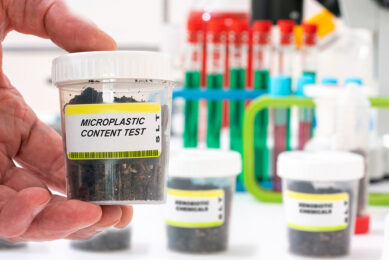Seaweed species suggests promising nutritive value

A study carried out by the Centre for Animal Nutrition on the nutritive value of seaweed suggests a promising nutritive value of specific seaweed species. Project leader Paul Bikker presented the first results at the annual meeting of EAAP in Copenhagen at August 28th 2014.
The development of the world population increases the requirement of biomass for human and animal consumption. At present, seaweed is not used as a feed material to any significant extent and information on the feeding value is scarce. Nonetheless, seaweed cultivation is of interest because cultivation does not compete for land-use. Optimal use may include bio refinery and application of the residue in animal feed. The aim of this study was to evaluate the nutritive value of different seaweed species from various European locations and the influence of a bio refinery process on the value of the residue.
The observations included:
i) contents of protein and amino acids, fatty acids, carbohydrates, fibre (NDF, ADF, ADL), and minerals;
ii) in vitro ileal and total tract digestibility of protein and organic matter using a modified Boisen method, and
iii) fermentation in a gas production system (GPT) to simulate rumen degradation of organic matter. Soybean meal (SBM) and grass silage were used as reference substrates. Preliminary results indicate large differences in mineral content and nutritive value between seaweed species (e.g. lysine 2-11 g, fat 3-23 g, CF 27-80 g, P 0.6-3.4 g per kg) and relevant similarities within species from different locations. In vitro ileal (18-69%) and total tract (36-68%) dry matter digestibility varied drastically, with some species exceeding the values obtained for SBM (45% ileal and 73% total tract) in this system.
Cumulative gas production of the seaweed species in the GPT varied from 10-100% of that of grass silage. Results emphasise the importance of adequate selection of species and suggest a promising nutritive value of specific species, to be confirmed in in vivo digestibility and performance studies.
Source: Wageningen University











